Hello and welcome!
Last Saturday, we had the joy of ordaining seven transitional deacons at the Cathedral the Holy Cross. These are men who, next year, will be ordained priests. It is always a very happy moment for the Church to be ordaining men to ministry.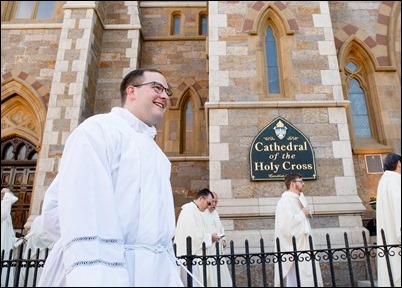
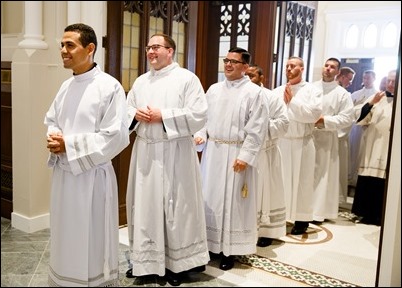
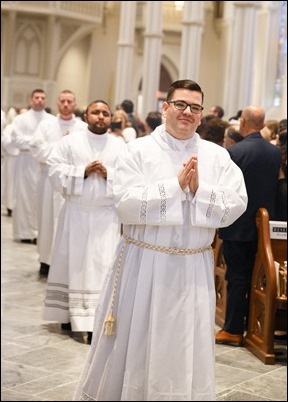
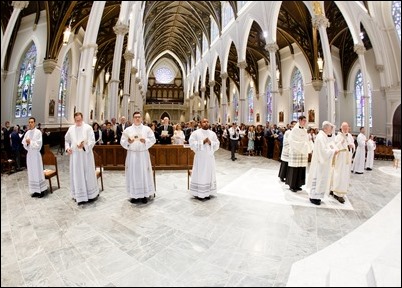
I was struck that the number of those being ordained was seven, which was the number of the original deacons in the Acts of the Apostles. In my homily, I teased them a little bit about that, saying that there are many things that come in sets of seven — the Seven Wonders of the World, the Magnificent Seven and, of course, the Seven Dwarves — but most importantly there are the seven deacons in the Acts of the Apostles who were ordained to carry on the ministry of mercy and to work to heal divisions in the community. These are still very important functions of our deacons today.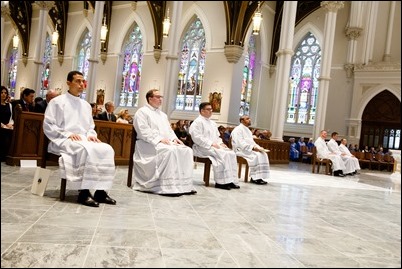
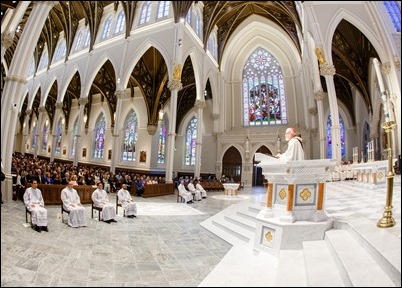
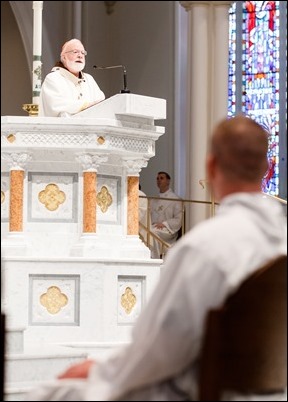
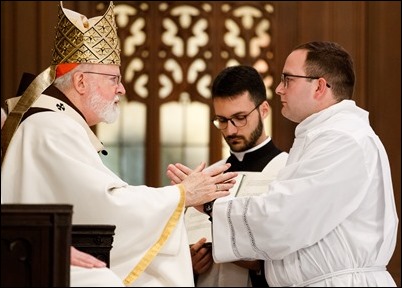
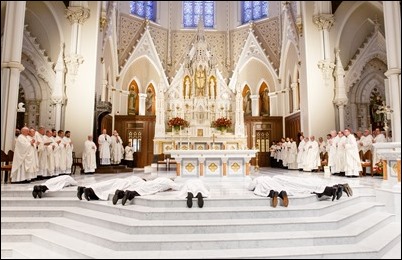
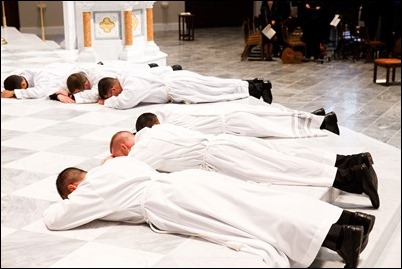
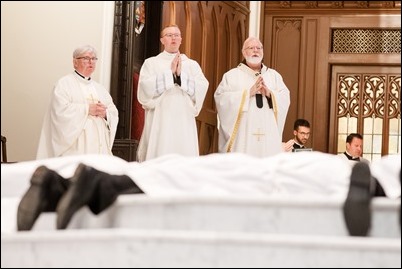
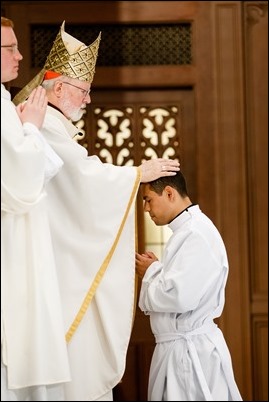
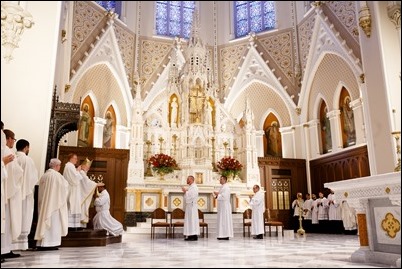
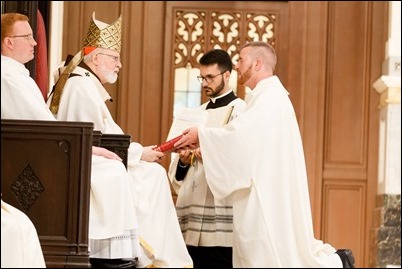
Of course, the diaconate represents the servanthood of Jesus Christ, which is manifested in this ministry. The Church has the tradition of ordaining men as deacons before they are ordained priests, but they will always be ordained into this ministry of servanthood, which will perdure in their priesthood, as well.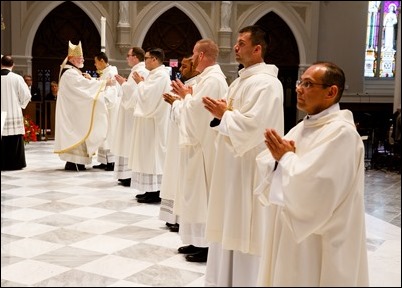
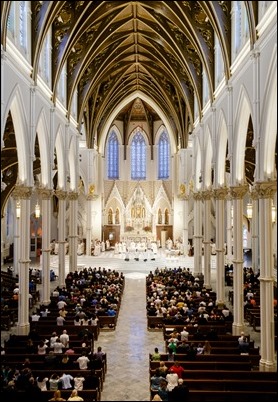
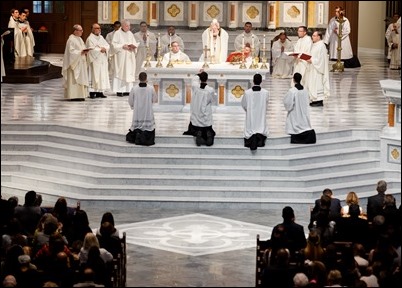
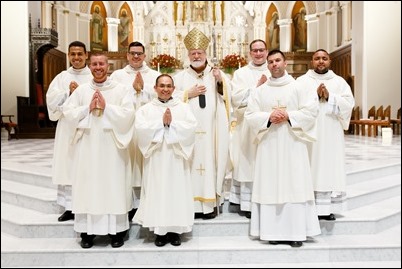
The word deacon means “servant,” and Jesus said he came to serve, not to be served. He is calling us to follow the example that he gave us at the first Eucharist — The Last Supper — in which he washed the feet of the disciples and told us that he was doing this to give us an example of fraternal love and service to one another.
Pentecost Sunday, I went to the Madonna Queen Shrine in East Boston to celebrate confirmations for the Brazilian community. It was a very large group of about 150 confirmands.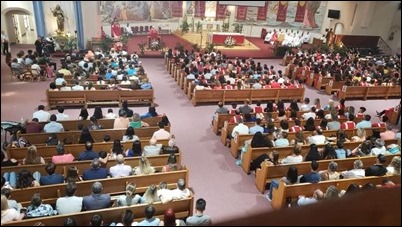
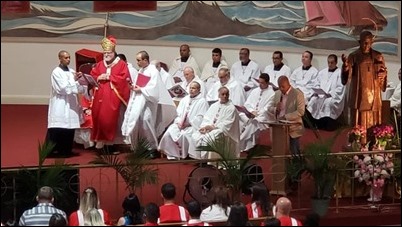
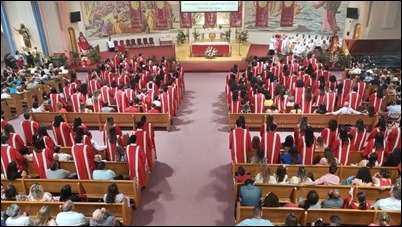
The Mass was also an opportunity for us to welcome the two new Don Orione Fathers who have arrived to minister at the Shrine – Father Antonio, a Brazilian priest who was previously working in the Philippines, and Father Angel who is a Spanish priest and is now stationed at the shrine with responsibility for the Spanish-speaking community.
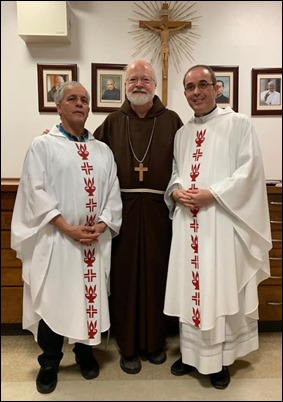
On Monday, we began our annual Spring Meeting of the U.S. Conference of Catholic Bishops.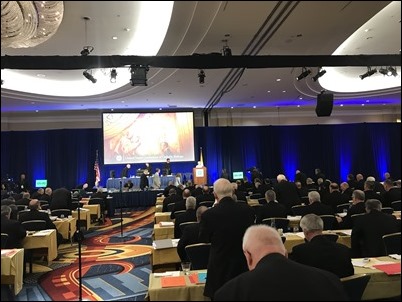
In conjunction with the plenary session, there are also always a number of committee and other meetings that are held either before or during the plenary session.
One such meeting that I attended was a meeting of the board of directors of the National Catholic Bioethics Center on Monday. The NCBC actually began in Boston and is a national center that has been invaluable in the life of the Church, particularly around questions of medical ethics.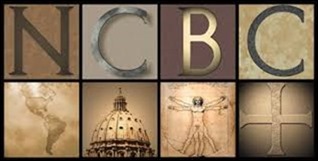
The founder and first director of the center, Dr. John Haas, is finishing up his long tenure there. So, this was his last meeting as president. 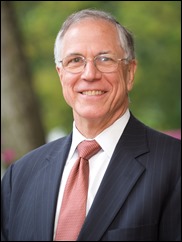
He has given just extraordinary service to the Church in this area that is becoming more and more complex and more and more important in the life of the Church. It was an opportunity for the bishops and the others present to express our heartfelt thanks to Dr. Haas for his tireless work. He has served the Church in so many different ways.
At the meeting, we were also introduced to the new president, Dr. Joseph Meaney, who had previously served as Director of International Outreach and Expansion for Human Life International. We were very pleased to welcome him.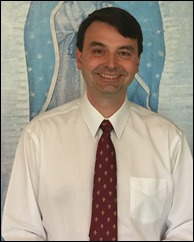
That day we also had a meeting of the U.S. Bishops’ committee for the Church in Africa. This committee was founded thanks to the efforts of Bishop John Ricard, who is a Josephite. Because of his work on the board of Catholic Relief Services, he became acquainted with the tremendous growth and also the great economic challenges that the Church in Africa faces. So, he asked the conference to begin a special collection for the Church there, very much like the special election for the Church in Latin America and the Church in the Middle East. It is always very encouraging to see the wonderful things that are being done through this collection.
On Tuesday, we began the general sessions where the key issue being dealt with was the issue of accountability, transparency and involvement of laypeople in the path forward to resolve challenges in reporting and investigating allegations of misconduct concerning bishops and superiors. 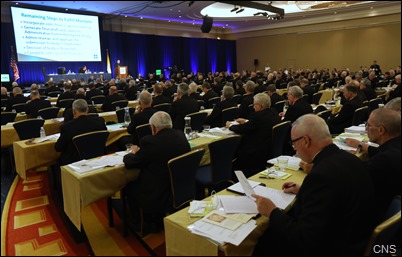
There had been great expectation around the November bishops’ meeting, which was frustrated by the postponement in making decisions requested by the Vatican. Then, in January, bishops had the opportunity to gather in Chicago at Mundelein Seminary for a wonderful retreat, which was a chance to reflect more on the issue and to wait for direction from the Holy See that would apply to bishops’ conferences around the world. That document came out recently and was the basis for our deliberations and the decisions that have been made here in Baltimore. I think there was great unity shown among the bishops and resolve to confront this challenge. So, I think the bishops feel very positive about the meeting.
For those who want to learn more, I’d like to share with you this question and answer document prepared by the USCCB, which gives a broad overview of our work on this issue:
MOVING FORWARD
Concrete Steps to Hold Bishops Accountable
1. What happened in Baltimore?
The USCCB voted on several proposals to hold bishops accountable for instances of sexual abuse of children or vulnerable persons, sexual misconduct, or the intentional mishandling of such cases. We specifically committed to involving and utilizing lay professional experts. We also established a new, independent mechanism for the reporting of such cases.
2. Isn’t the “Metropolitan Model” just bishops policing bishops?
While we have seen Metropolitan investigations achieve success in uncovering, publicizing and punishing bishop misconduct multiple times in the past year, the body of bishops agreed in Baltimore that independent lay oversight is crucial. The combination of lay involvement, Metropolitan leadership and the final judgment of the Holy See will ensure that complaints are evaluated thoroughly, and justice is achieved for victims and survivors.
3. How exactly will the laity be involved?
We’re building upon the well-established practice of lay expertise in the Church, starting at the very beginning of this process. Laypeople will assist us in informing the public about how to utilize our new reporting mechanism. A lay person will be informed any time a complaint comes through that process. Lay investigators will be identified at the provincial level by Metropolitan Archbishops and will play an active role in investigating individual complaints against bishops.
4. Is this process transparent? What will the public know about credible complaints against individual bishops?
Pope Francis’s Motu Proprio includes whistleblower protections that will allow anyone making a complaint to publicize it however they wish. The new Directives require those making a complaint to be given documents describing the process. As noted, the bishops are also committed to lay involvement in both the receiving of complaints against bishops and in any investigations. With these safeguards, the bishops are committed to making the process as transparent as they possibly can.
5. Level with me: Will the policies approved in Baltimore protect people from abuse at the hands of bishops?
We’ve achieved a goal stated by USCCB President Cardinal DiNardo throughout the process: We’ve filled the gaps in the Charter for the Protection of Children and Young People and now build upon its success. The Holy Father’s Motu Proprio, the new Directives, the renewed Episcopal Commitments, the third-party reporting system, and the heavy emphasis and reliance on lay expertise in the United States will bring unprecedented accountability throughout the hierarchy of the American Church.
The national reporting mechanism may not be ready until next spring, but we already have something in place in the Archdiocese of Boston. When the bishops of the Boston Province realized what the timeframe was for the national program to be launched, they asked to come on board with Boston, so that we can begin this program immediately while we wait for the bishops’ conference to be able to launch the national program. Of course, the program will involve laypeople in the process. So, we are very happy to welcome them and there will be further announcements about this in the very near future.
While the issue of accountability was our primary focus, there were some other items from our meeting that I want to share with you.
For example, we also heard a presentation by Bishop Robert Barron on millennials, evangelization and apologetics, in preparation for a more fulsome presentation that he and his group will be presenting at the U.S. Bishops’ meeting in November.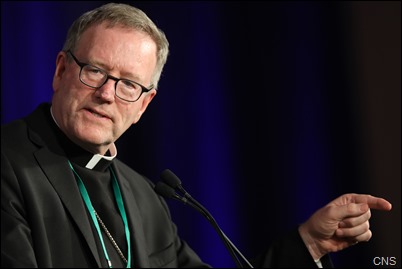
There was also a request from Bishop Doerfler of Marquette, Michigan to advance the cause of canonization for Mr. Irving Houle.
Mr. Houle was a member of the Knights of Columbus, a veteran, an athlete and a father of a family — he was a man who led a very ordinary, but a very holy life. 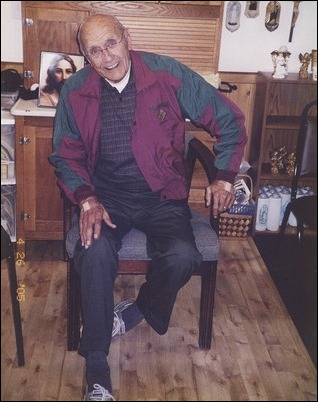
He is being held up as an example of sanctity in the ordinary circumstances of the life of a Catholic. He is now a Servant of God and with the approval of the bishops’ conference his cause can advance.
And, of course, the bishops were also very pleased when it was announced that Father Augustus Tolton, a former slave who became the first black priest in the U.S., was put on the path to sainthood by Pope Francis when, on Wednesday, he signed the decree of recognizing his heroic virtue.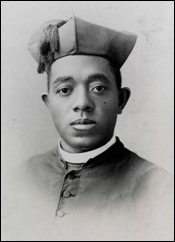
We also took a vote on the National Directory for the Formation, Ministry and Life of Permanent Deacons in the United States.
The bishops’ meeting happened to coincide with the birthday of Bishop Robert Reed. So, on Wednesday we had a small birthday party at a local Italian restaurant for him.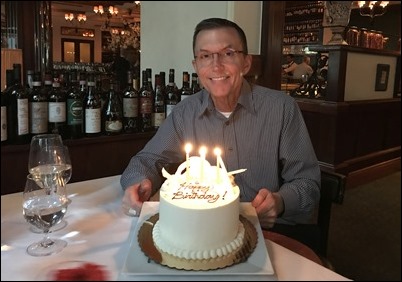
It was nice of him to plan his birthday in a way that all the Boston bishops could be together for the celebration!
Until next week,
Cardinal Seán
